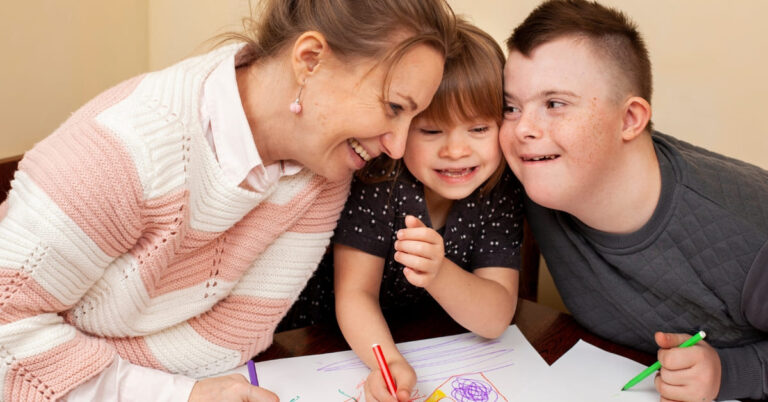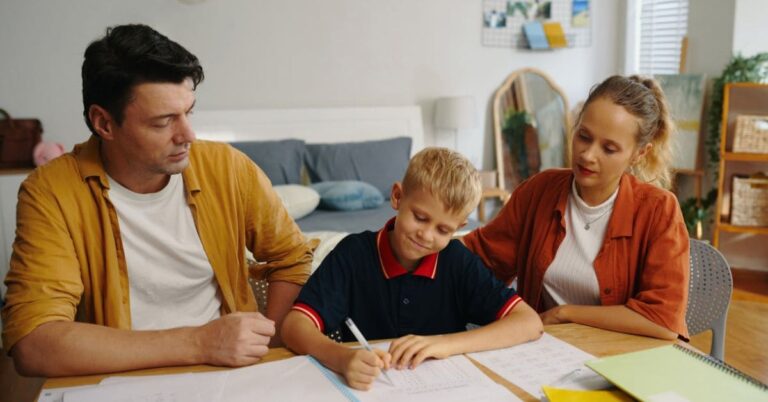Every child develops at their own pace, and one out of five children may experience speech and language development that progresses more slowly than their peers. If your child is facing this issue, it may indicate a speech delay. Sometimes children overcome the speech delay by the time they enter KG.
On average, a 2-year-old can typically say around 50 words and form 2 to 3-word sentences. By the age of 3, they can use up to 1,000 words and express themselves in 3 to 4-word sentences.
If your toddler hasn’t crossed those milestones then they may have a speech delay however a speech delay can also be a sign of a hidden problem that needs specialized care.
Looking for help as early as possible goes a long way toward improving your child’s skills and it’s important for parents and caregivers to understand what speech delay is and as well as why a thorough, professional assessment may be necessary for exact treatment.
What is speech delay?
A speech delay is when a child isn’t developing speech at an anticipated rate. It’s a common developmental problem that affects as many as 10% of preschool children.
Children with a speech delay might use words and phrases to express ideas but hard to understand.
Potential causes of speech delay
Speech delay may mean that your child’s schedule is a little different and he or she will eventually catch up with the time but sometimes speech delay can be more than one underlying cause of speech delay and language disorder and not all may be right. Our psychotherapists can start without a diagnosis by simply treating the symptoms.
Here are some common causes of speech and language delay:
Oral impairment
Many kids with speech delays have oral-motor problems, this is a problem in the area of the brain that is responsible for speech. It makes it hard to coordinate with the lips, tongue, and jaw to make speech sound. These kids also have other oral-motor problems like feeding problems.
Hearing loss
A child who can’t hear well or hears distorted speech is likely to have difficulty in forming words. Hearing loss is often overlooked but luckily it is also easily identifiable. There is one more sign of hearing loss that your kid will not acknowledge a person or object when you name them but does if you use gestures. However, signs of hearing loss may be very subtle sometimes speech delay may be the only noticeable sign.
Autism
Speech delays often affect children with autism. In one study researchers found that half of the 3-4 years old diagnosed with autism couldn’t speak at a level of their age. Autism spectrum disorder also affects language development in other ways.
Autistic kids face difficulty in communicating nonverbally, so sometimes they may not be able to express their needs by 12 months.
Autism can also cause problems for speech delay others may not understand them because their child keeps repeating the same word, usually a phrase they heard somewhere like a TV show, video game, or movie.
Their condition can be improved greatly with a combination of early intervention speech, occupational, and ABA therapy.
COVID-19
Yes’ the COVID-19 pandemic left many effects on our lives, and it also impacted children’s development and it’s a topic of concern. Speech delay in children is one of the important areas that parents and experts have closely monitoring.
Well, there is no direct factor that can prove that COVID-19 causes speech delay but there are some indirect factors related to the pandemic that could affect a child’s speech development.
Covid reduced our social interaction and social interaction is crucial for language development because children learn by observing and imitating people around them. The depletion in face-to-face interaction could affect a child’s exposure to language and slow their progress.
Introverted parents
Child development is a complex world influenced by many factors. Introverted parents, while nurturing and loving, may sometimes be linked to speech delays in children. Let’s look at some points of how introvert parents may impact a child’s speech development:
Introverted parents normally have less engagement in verbal interaction with their children. Children learn language and communication skills with the help of exposure and interaction, so limited verbal interaction can lead to a delay in speech development.
Introverted parents are less likely to engage in social activities or social gatherings. These interactions give a chance to children opportunities to observe and learn from different conversational styles and language patterns. Reducing social exposure can limit a child’s exposure to different ways to speak.
Neurological problems
Some neurological problems like cerebral palsy, muscular dystrophy, and traumatic brain injury, can affect the muscles needed for speaking and can cause speech delay in anyone not only in kids.
General speech-language delay:
This is the most common and easily-remedied condition that occurs when a child is not keeping development pace with their peer. It is a temporary situation, addressed with therapy and carryover in other settings like home, school, etc. Most can catch in relatively short order.
Receptive language disorders.
In this condition, the child has trouble understanding what is being said. Their word will not be clear and they may not use many words. They face problems in following directions and linking one word to another. Speech therapy is the most effective treatment, but it often takes longer tie than others.
Treatment
Treatment of speech delay is a speech-language therapist and if you are looking for the best speech-language pathologists (SLPs) you can trust Mind Grove. Our SLPs are highly trained and experienced in addressing a variety of concerns related to communication and feeding.
Our dedicated team of speech-language pathologists (SLPs) is committed to helping individuals of all ages feel free to contact Mind Grove.




